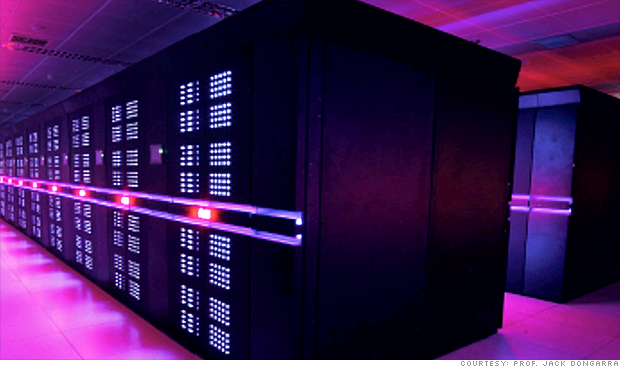Check this article out re Quantum Computing. It's here now.
D-Wave have one and this guy took a commercial approach to making it rather than rely on the open scientific community to research.
It goes for 5 pages but is very interesting.... there are some doubts but it is a great start.
The problem of lack of recognition is fast disappearing for D-Wave, the world's first and so far only company making quantum computers. After initial disbelief and ridicule from the research community, Rose and his firm are now being taken more seriously — not least by aerospace giant Lockheed Martin, which bought one of D-Wave's computers in 2011 for about US$10 million, and Internet behemoth Google, which acquired one in May.
Achievements are interesting.
Regardless of how the D-Wave computer works, the practical question is whether it can be used for real-world problems. It can — sort of. In 2009, for example, a Google research team developed a D-Wave algorithm that could learn to judge whether or not a photo showed a car — an example of a 'binary image classifier' that could in principle be used to tell whether a medical image shows a tumor, or a security scan shows a bomb. Finding ever-better ways of doing this sort of task is at the heart of artificial intelligence, and is one area in which an adiabatic quantum computer is expected to excel.
In 2012, researchers at Harvard University in Cambridge, Massachusetts, used a D-Wave machine to find the lowest-energy folding configuration for a protein with six amino acids. They did not have enough qubits to code the problem properly, but even so, on a problem that no other quantum computer could touch, the D-Wave machine found the best solution 13 times out of 10,000 runs. And many of the other answers were good solutions, if not the best.
Meanwhile, Lockheed Martin researchers have developed an algorithm that allows D-Wave machines to tell whether a piece of software code is bug-free — something that, they note, is impossible with classical computers. “You would never know” for sure if a piece of classical-computer code was clean, says Ray Johnson, chief technology officer for Lockheed Martin in Bethesda, Maryland. All anyone could say was that no fault had been found after years of testing. “But now you can say with certainty,” says Johnson. “We have great hope, and confidence, in the ability of the computer to scale to real-world complex problems.”
D-Wave also competes well against conventional computers in terms of speed, although direct comparisons are difficult. Earlier this year, D-Wave asked Catherine McGeoch, a computer scientist at Amherst College in Massachusetts, to put the D-Wave Two through its paces to satisfy Google before the Internet giant confirmed its deal. McGeoch found that in the optimization-type problems that the D-Wave was designed to solve, it came up with the right answers in half a second, compared with 30 minutes for a top-level IBM machine. “That's one of the most exciting things to happen in quantum computing,” says O'Brien.
Full articile:
http://www.scientificamerican.com/artic ... ontroversy